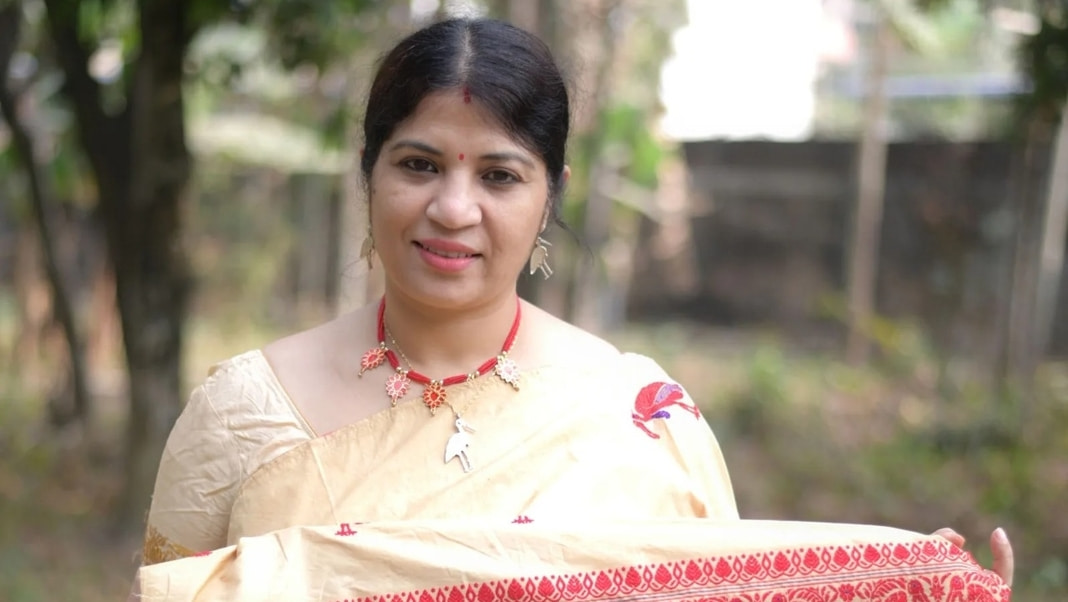Guwahati, Feb 20: Aaranyak’s conservation biologist, Dr. Purnima Devi Barman from Assam, has been named to the 2025 TIME Women of the Year list, joining an illustrious group of 13 honorees.
The list features influential women from diverse fields, including actor and producer Nicole Kidman, WNBA MVP A’ja Wilson, Olympic gymnast Jordan Chiles, artist Laufey, actor Anna Sawai, reproductive rights activist Amanda Zurawski, Feeding America CEO Claire Babineaux-Fontenot, Gambian women’s rights activist Fatou Baldeh, activist and author Raquel Willis, actor and breast cancer awareness advocate Olivia Munn, co-founder and CEO of Bobbie Laura Modi, conservationist Purnima Devi Barman, and Gisèle Pelicot, a voice for survivors of sexual violence.
Dr. Barman, from Assam, is renowned for her relentless efforts in conserving the endangered greater adjutant stork, locally known as Hargila. Once one of the world’s rarest storks, the species has seen a remarkable revival thanks to her dedication.
TIME’s senior editor Kyla Mandel, who oversees climate, science, and space coverage, recounts a pivotal moment in Barman’s journey. In 2007, she received a call about a tree being cut down in Assam, one that housed a family of greater adjutant storks. Arriving at the scene, she found a nest of endangered chicks on the ground. When she confronted the man who felled the tree, he dismissed the storks as pests and omens of bad luck.
Barman, then a young mother to twin daughters, felt an instant connection to the helpless chicks. “For the first time, I felt the importance—the call of nature,” she recalls. “From that day, my mission started.”
At the time, only about 450 greater adjutants remained in the region. Thanks to Barman’s tireless work, their numbers in Assam have surged past 1,800, leading the International Union for Conservation of Nature (IUCN) to reclassify the species from “endangered” to “near threatened” in 2023.
Key to this success is the Hargila Army, a grassroots movement led by Barman and comprising over 20,000 women. These women protect the birds’ nesting sites, educate communities, and integrate conservation into local culture. The movement has expanded beyond Assam to other parts of India and even Cambodia, while schools as far as France now teach students about Barman’s work.
Today, Barman proudly wears traditional Assamese attire adorned with stork motifs, handwoven by the women of the Hargila Army, who now earn a livelihood through their craft. The conservation efforts extend beyond protection—celebrating baby stork showers, composing songs, and weaving cultural traditions around the bird.
“This bird is now a part of our tradition and culture,” says Barman, reflecting on how a once-despised scavenger has become a symbol of pride and conservation success.
Read: CM Pema Khandu urges the public not to misinterpret the Arunachal Pradesh Freedom of Religion Act
WATCH:
Find latest news from every corner of Northeast India at hubnetwork.in, your online source for breaking news, video coverage.
Also, Follow us on-
Twitter-twitter.com/nemediahub
Youtube channel- www.youtube.com/@NortheastMediaHub2020
Instagram- www.instagram.com/ne_media_hub
Download our app from playstore – Northeast Media Hub





